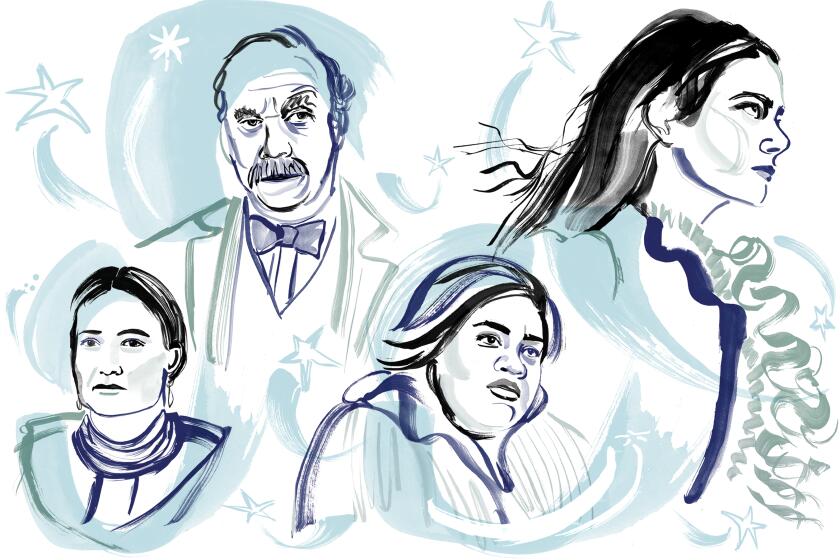Review: Our critic watched all 15 shorts nominated at the 2024 Oscars. Here’s what should win
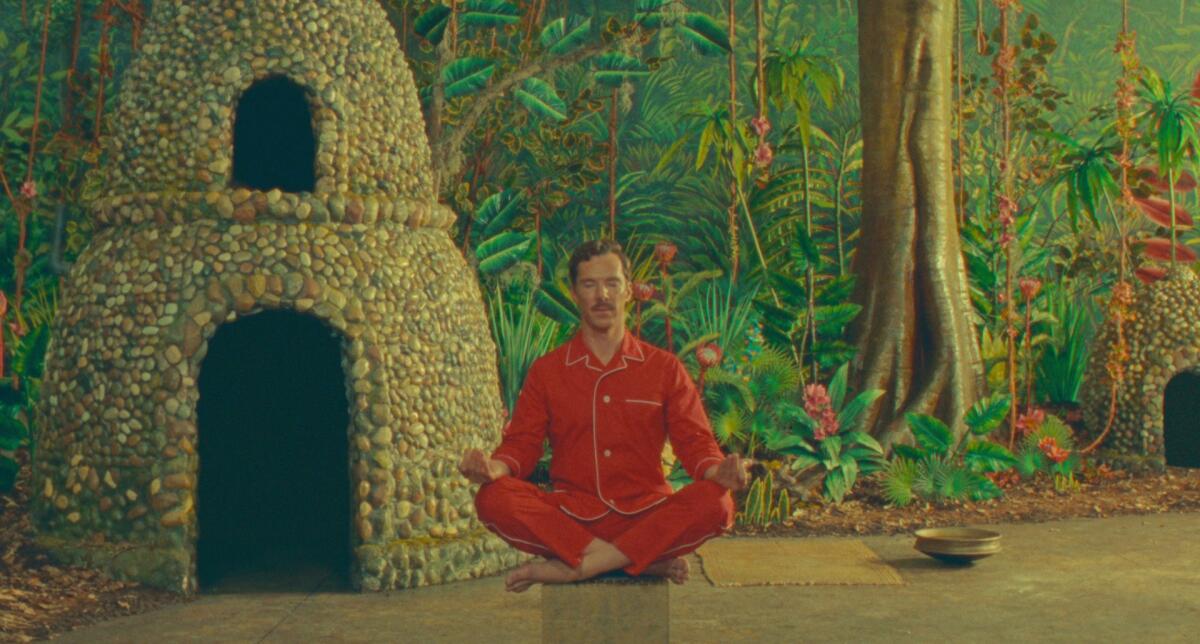
- Share via
Short films require the same tools and sensibilities as features, and when they’re wonderful, they can be just as exemplary of cinema’s promise. Thankfully, the Academy Awards still honor them in three categories, and this year’s live action, animated and documentary hopefuls prove this concentrated form’s artistry and breadth. (All 15 films are in limited release starting tomorrow.)
The 2024 Oscar nominations were announced Tuesday, with big numbers for “Oppenheimer,” “Barbie” and two foreign titles, “Anatomy of a Fall” and “The Zone of Interest.”
Of course, not all categories are equal in any given season, and this year the live-action bracket is the most haphazard in quality. The best entry, and most probable winner, is Wes Anderson’s colorful pop-up snack “The Wonderful Story of Henry Sugar,” a magical Roald Dahl adaptation of nested narratives, great actors changing costumes and diorama showmanship. With its twinned strands of dedication and philanthropy, it should be every billionaire’s bedtime watch. But it’s also Anderson at his most spiritually, inventively complete.

The other four shorts stick to hard realities but navigate their dark spaces with varied success. Lasse Lyskjær Noer’s “Knight of Fortune” turns an older man’s evasive goodbye into a touching, expertly acted comedy between awkward widowers. The slippery, London-set “The After,” from director Misan Harriman, takes an unwieldy path toward its wrenching finale, but is especially lucky to have the superb David Oyelowo as its grieving protagonist.
Canadian filmmaker Vincent René-Lortie’s “Invincible” is also working out some intense feelings, in this case about the last 48 hours of a troubled youth (Léokim Beaumier-Lépine) who the director knew. It’s haunting, self-consciously arty and ultimately distancing — some mysteries of loss are harder to convey. The very real absence of abortion rights, however, is felt throughout Nazrin Choudhury’s noirish slice of life “Red, White and Blue.” The struggle of its strapped, single-mom waitress (Brittany Snow) to cross the state line for a procedure is a gut punch lying in wait.
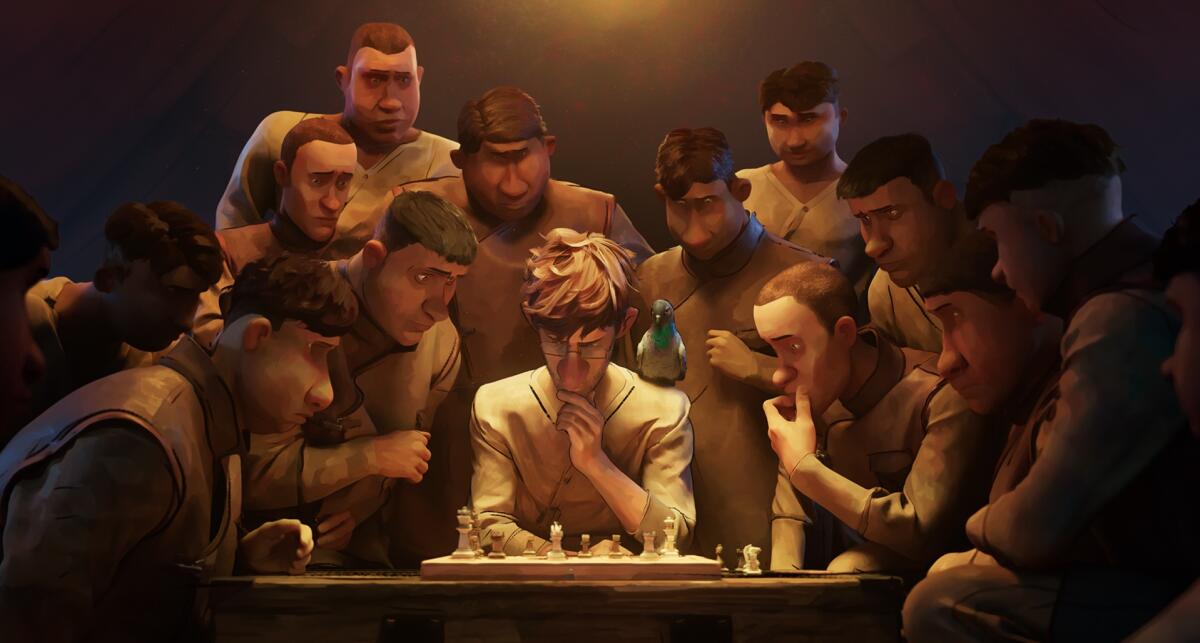
The animation category isn’t much more uplifting. (Generally speaking, short animated films are more adventurous than their feature-length brethren.) The lavish “War Is Over! Inspired by the Music of John & Yoko,” from Pixar alum Dave Mullins, tries to combine a grim topic (soldiers in a World War I-type trench battle) with a positive message (can’t we all just play chess?). As the Lennon-Ono peace anthem “Happy Xmas (War Is Over)” spins, so too, surely, does Stanley Kubrick in his grave. Breezier about mortality is the charming and melancholic “Ninety-Five Senses,” the first animated short from “Napoleon Dynamite” duo Jared and Jerusha Hess, in which a condemned man (Tim Blake Nelson, in honeyed hillbilly mode) muses on the senses he’ll soon lose.
The remaining nominees — knockouts of style and mood — are craftier evocations, digging into spaces where memories are vivid yet elusive. In the fabric-meets-animation short “Our Uniform” from Yegane Moghaddam (the first filmmaker from Iran ever nominated in this category), a girl’s recollections of school life are imaginatively embroidered onto the creases and textures of her mandatory clothing, creating a vibrant seven minutes of feelings. Childhood is also at the center of Stéphanie Clement’s subtly unnerving “Pachyderme,” with its female narrator cautiously remembering a lakeside summer with her grandparents. Each painterly frame simultaneously conjures surface beauty and submerged pain.
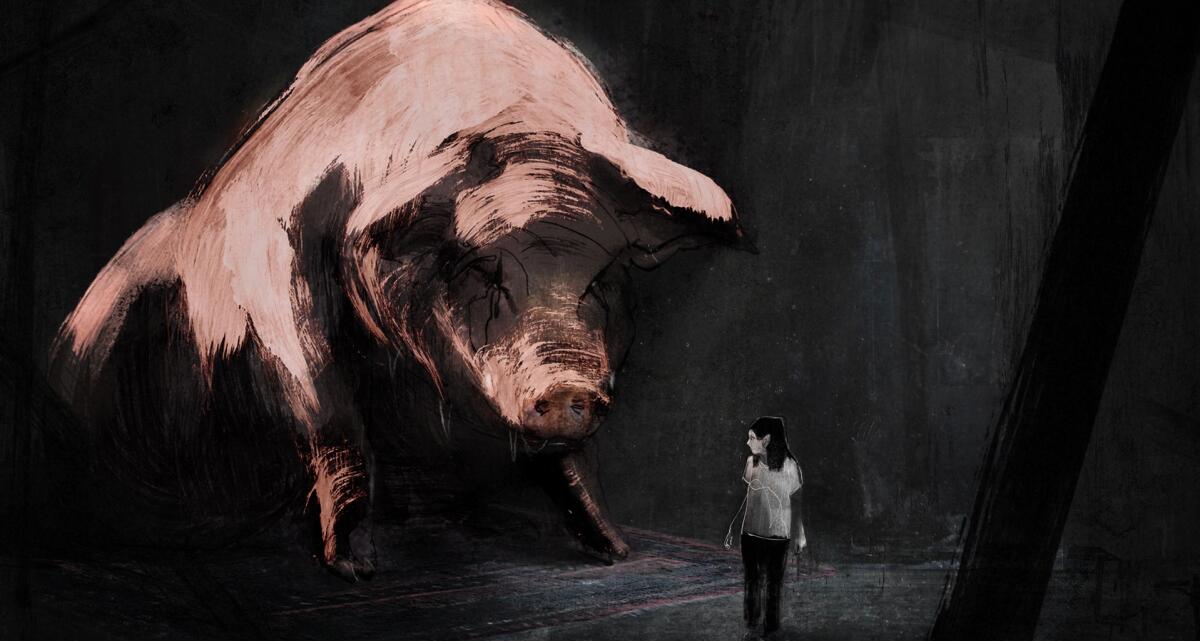
What should win, if it isn’t too impenetrable to voters, is Israeli artist Tal Kantor’s timely, masterful hand-drawn video hybrid “Letter to a Pig.” It depicts a bored schoolkid’s absorption of a Holocaust survivor’s story about a pig saving him from Nazis, and how it morphs from someone’s literal history to a dreamlike personalization of collective trauma. In stains of pink and black and quivering images that unravel and reassemble across generations, Kantor taps into a young person’s anguish and awakening.
Over in the short-doc category, Taiwanese American director Sean Wang’s moving and funny snapshot of his Asian immigrant grandmothers, “Năi Nai & Wài Pó,” sits on the more playful side of that age-and-experience divide. It’s a sunset story, naturally, but also a tale of rising and shining, not to mention dancing, cooking, play-acting and vigorous teasing (of their just-out-of-frame grandson). You’ll want to check in on your elderly loved ones when it’s over — and why haven’t you called more?
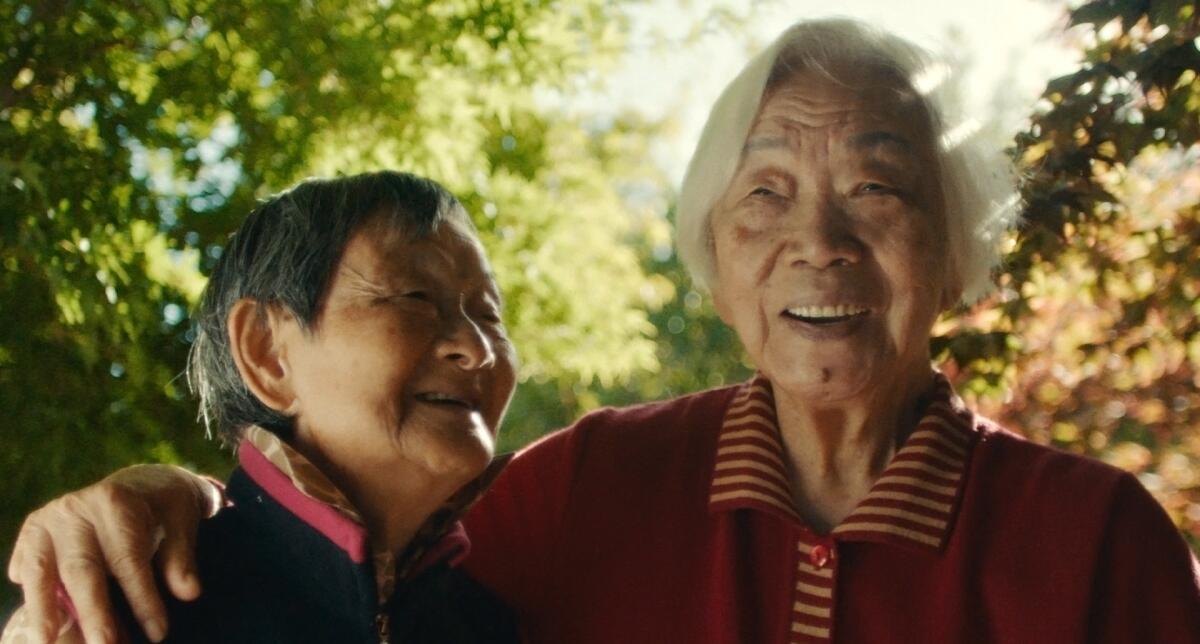
Another personal film with a Taiwanese connection is Taipei-born S. Leo Chiang’s elegant identity essay “Island in Between,” which illuminates the tensions between Taiwan and China as more complex than geopolitical news coverage would suggest — and more unfixed than passports and boundaries might define.
Some issues movies benefit from clarity: “The Barber of Little Rock,” from Christine Turner and John Hoffman, is a galvanizing, close-knit study of Arkansas barber and banker Arlo Washington, whose efforts to move the needle on America’s unjust racial wealth gap in his economically segregated city happen one life-changing business loan at a time. I wish “The ABCs of Book Banning,” boasting the first directing credit from longtime doc doyenne Sheila Nevins, were more focused in its outrage. But its emphasis on several grade-schoolers’ smart, considered reactions to censored books is still a valuable approach.
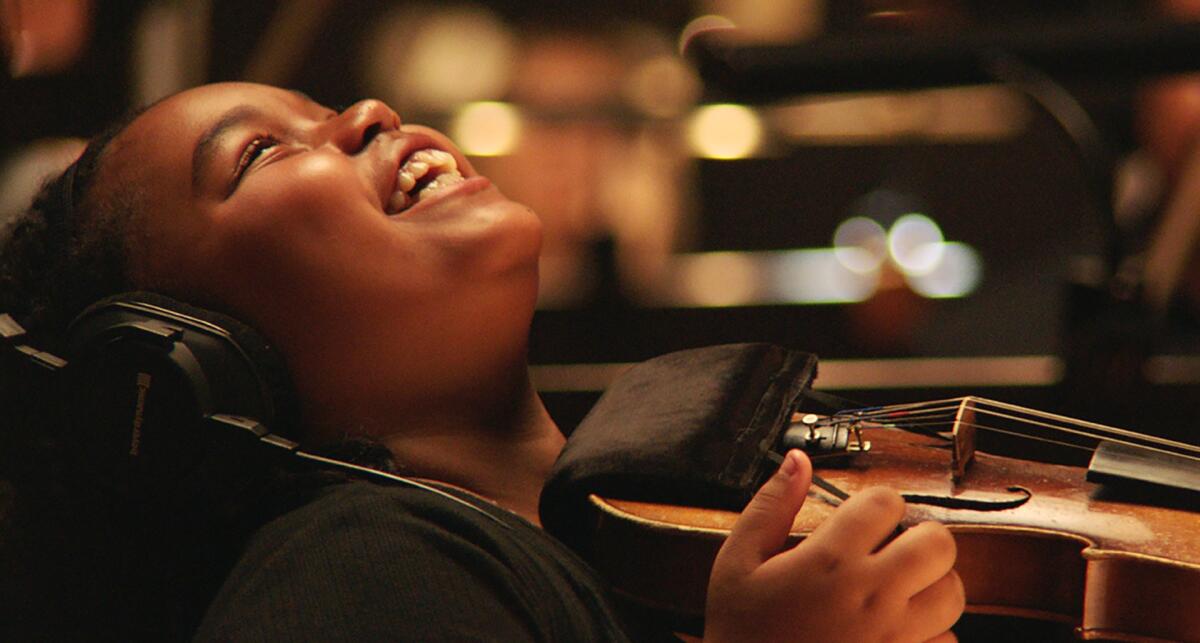
The standout of the bunch — and likely Oscar winner, if volume of tears is a metric — is the magnificently shot “The Last Repair Shop” from Ben Proudfoot and Kris Bowers, which showcases the workshop heroes of a Los Angeles institution that offers free instrument tuneups to music students. (Full disclosure: It’s a production of our own LA Times Studios.)
The short is as gorgeously filmed as any prestige feature. But it’s in these technicians’ incredible life stories — poignant tales of tragedy overcome, hardship curbed and identity affirmed — combined with the kids’ testimonies about music’s therapeutic impact, that a stirring truth emerges. When a city prioritizes arts education, it cultivates its citizenry to become a well-tuned, thriving symphony. Civic pride doesn’t get much more melodic.
'2024 Oscar Nominated Short Films'
Not rated
Running times: Live-action program: 2 hours, 20 minutes; animated program: 1 hour, 20 minutes; documentary program: 2 hours, 20 minutes
Playing: In limited release Friday, Feb. 16
More to Read
Only good movies
Get the Indie Focus newsletter, Mark Olsen's weekly guide to the world of cinema.
You may occasionally receive promotional content from the Los Angeles Times.
